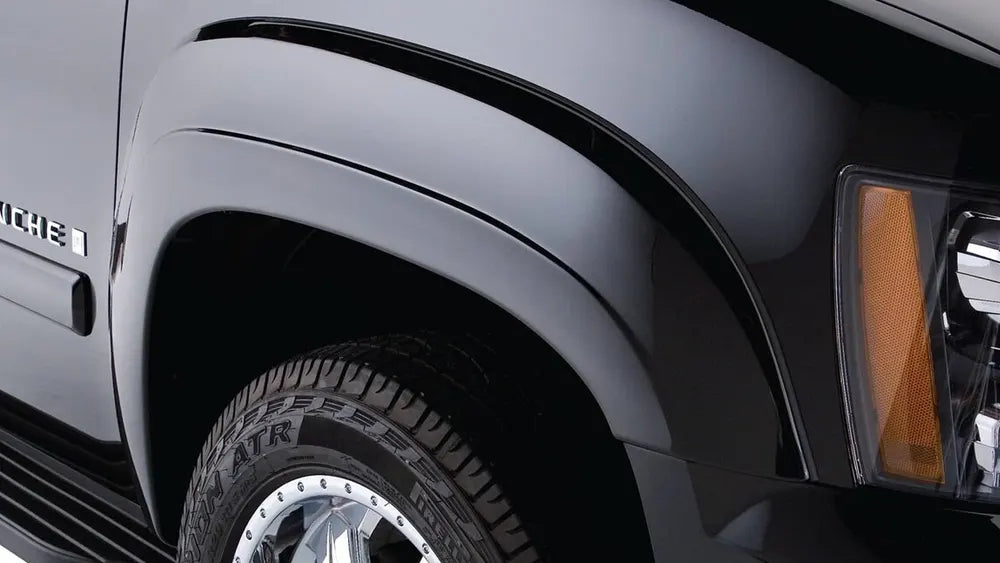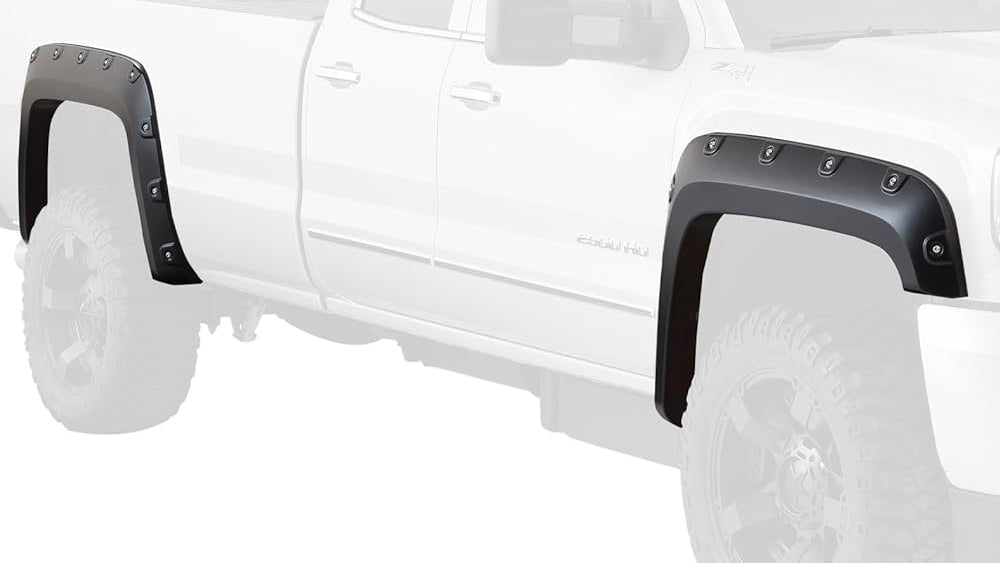Picture this: you're cruising down the open road, the wind in your hair, and your trusty vehicle devouring miles. Gas mileage is a constant concern for any driver, and in the quest for improved fuel efficiency, many turn to aftermarket accessories like fender flares. But do these seemingly innocuous extensions really affect your gas mileage? In this article, we'll dive deep into the impact of fender flares on fuel efficiency, debunking myths along the way.
The Fender Flare Frenzy
From off-road enthusiasts to city slickers, fender flares have become a popular addition to various vehicles. The first question that pops up is often, "Do fender flares actually serve a purpose, or are they just for show?"
Dispelling the Aesthetic Myth
Contrary to popular belief, fender flares are not just a cosmetic enhancement. While they undeniably add a rugged, aggressive look to your ride, their primary function is to provide additional coverage for oversized tires. This becomes especially relevant for off-road adventures, protecting your vehicle's body from mud, rocks, and debris.
The Tight Squeeze on Fuel Efficiency
Now, let's address the burning question: Can these enhancements to your vehicle's exterior affect its gas mileage?
The Aerodynamics Conundrum
One of the prevalent myths surrounding fender flares is that they significantly disrupt a vehicle's aerodynamics, resulting in increased drag and decreased fuel efficiency. However, the reality is a bit more nuanced.
Studies indicate that while fender flares can create some additional wind resistance, the impact on gas mileage is often minimal. The increased drag is more noticeable at higher speeds, such as on the highway, but for everyday city driving, the effect is negligible.
Tackling the Weighty Issue
Another aspect to consider is the weight of the fender flares themselves. Skeptics argue that these accessories add unnecessary pounds to the vehicle, thereby reducing fuel efficiency.
In truth, the weight of most fender flares is relatively modest and doesn't significantly impact a vehicle's overall weight. Modern materials, such as durable plastics and lightweight composites, ensure that the addition of fender flares doesn't tip the scales enough to cause a noticeable drop in gas mileage.
Bursting the Tire Myth
Beyond aerodynamics and weight, another myth claims that fender flares cause an increase in tire wear, indirectly affecting fuel efficiency.
In reality, fender flares are designed to accommodate larger tires, enhancing off-road capabilities. When installed correctly, they should not contribute to abnormal tire wear. If anything, they provide an additional layer of protection against road debris, potentially extending the lifespan of your tires.
The Verdict: Fender Flares and Fuel Efficiency
So, after sifting through the myths, what's the bottom line on fender flares and gas mileage?
While there may be a slight impact on aerodynamics, the overall effect on fuel efficiency is marginal for most drivers. The benefits of added tire coverage and protection against debris often outweigh any potential drawbacks, especially for off-road enthusiasts.
Conclusion:
In the world of automotive accessories, myths and misconceptions can quickly take hold. Fender flares, often dismissed as mere stylistic additions, prove to be more than meets the eye. Their impact on gas mileage, while not entirely negligible, is far from the dramatic drop some skeptics suggest. The key is understanding their purpose and choosing the right type for your driving habits.
As you consider adding fender flares to your vehicle, weigh the benefits of enhanced tire coverage and protection against the potential, albeit modest, decrease in fuel efficiency. Ultimately, the choice comes down to your driving needs and stylistic preferences.
FAQs:
Do all fender flares affect gas mileage?Not necessarily. The impact on gas mileage varies depending on factors such as the design of the fender flares, the type of driving (city or highway), and the overall weight they add to the vehicle. In many cases, the effect on fuel efficiency is minimal.
Can fender flares be installed on any vehicle?
Fender flares are available for a wide range of vehicles, from trucks and SUVs to cars. However, it's crucial to choose fender flares designed for your specific make and model to ensure proper fitment and functionality.
Are there specific fender flares designed for better aerodynamics?
Some manufacturers offer fender flares with aerodynamic considerations in mind. These may have sleeker designs to minimize drag. However, the impact on gas mileage is still relatively minor compared to other factors.
Do fender flares require professional installation?
While some enthusiasts may opt for DIY installation, it's generally recommended to have fender flares professionally installed. This ensures proper fitment, alignment, and a secure attachment, reducing the risk of issues down the road.
Can fender flares improve off-road performance?
Yes, one of the primary functions of fender flares is to accommodate larger tires, enhancing a vehicle's off-road capabilities. They provide additional clearance and protect the body from rocks and debris encountered during off-road adventures.



